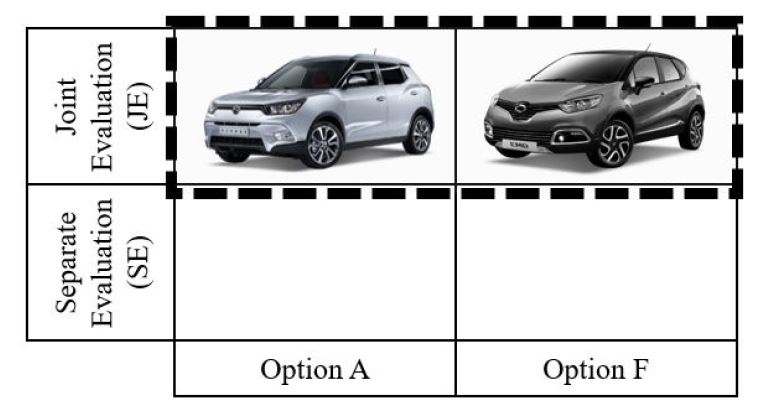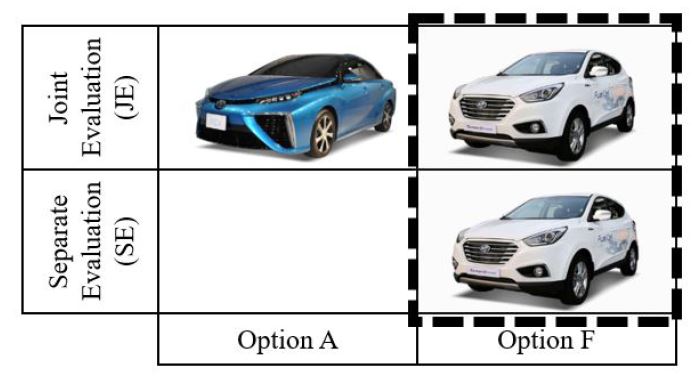
Background People often choose between two competing options: option A (aesthetically superior but functionally inferior) and option F (functionally superior but aesthetically inferior). We hypothesize that people like option A more when it is presented with option F (joint evaluation) than when presented alone (separate evaluation) because people find aesthetic attributes are hard to evaluate. We further hypothesize that this effect holds neither for option F nor among experts.
Methods We briefly reviewed two cases in the Korean automobile industry and then conducted two experiments in China. In the first experiment, we compared preferences about two USB drivers between two evaluation modes. In the second experiments, we compared preferences about two basketball shoes in the joint evaluation between novices and experts.
Results We found from the first experiment that participants increased their preferences for option A in the joint evaluation compared to the separate evaluation. Their preferences for option F did not differ between the two evaluation modes. In the second experiment, only novices preferred option A over option F in the joint evaluation. Experts did not prefer option A over option F.
Conclusions Our findings contribute to the scholarly discussions about form and function. They also provide practical implications to designers and marketers who need to sell aesthetically pleasing products. This work goes beyond design marketing interface to add evaluation mode as an intervention to nudge people to choose aesthetically pleasing products, which has been barely discussed in behavioral economics.
Aesthetic, Behavioral Economics, Function, Intervention, Knowledge, Marketing, Nudge
